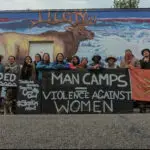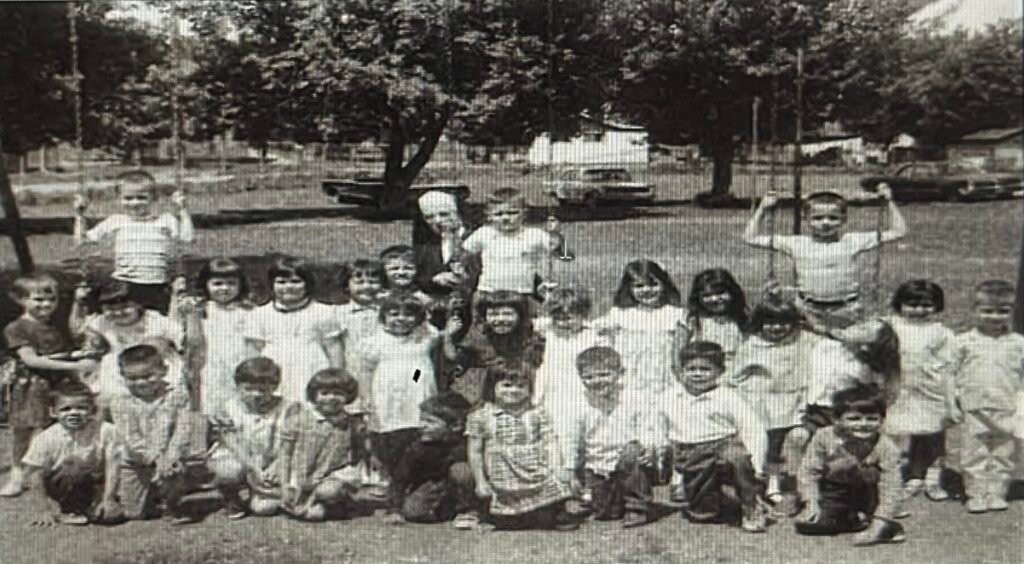
Shortly After the Indian Day School Settlement process began back in 2020; Tina Point, an Indian Day School survivor from the Akwesasne Mohawk Territory, co-founded Unity Street Help. Street help consists of volunteers who distribute homecooked meals, as well as Narcan kits and clothing to some of the more vulnerable population in and around Akwesasne.
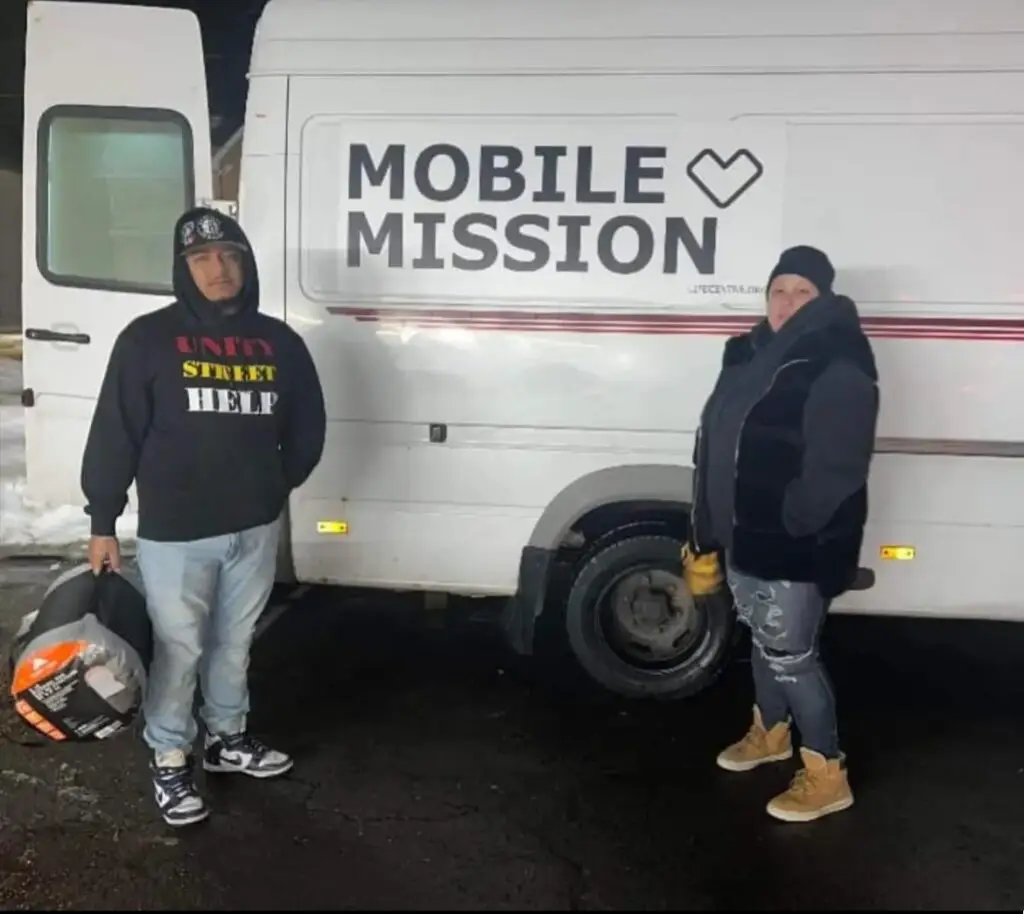
After working with her clients for several months, she came to realize most of the displaced indigenous
population in the City of Cornwall were Indian Day School Survivors, as well.
“When we started Street help, we were having pop ups giving clothes and food out. Then started
Weekly deliveries. I started to get messages from a lot of Grown Indian day school students that I spent
hours on the phone with giving traditional counseling. I realized that we were having our own crisis because people couldn’t handle telling their story. One of the guys I was counseling became homeless and was going to drug shops to keep warm and ended up overdosing, but he was saved.” Said Point. Although, many others were not as fortunate.
Fatal drug overdoses have become a common occurrence in and around Akwesasne. Unfortunately, this is the case for many Indian Day School Survivors who were once volunteers for Unity Street Help.

“After a long battle with addiction, our beloved Brandon has suddenly passed. Brandon has touched the lives of many around him with his huge heart and blessed us with smiles, laughter, love, stories and
great life advice.
He leaves behind his 5 children who are mourning his loss. We are all devastated by Brandon’s passing, and we are not prepared for the cost of such a tragedy.”
Reads the GoFundMe page created by the late Brandon Sylvester’s family, back in May 2023.
Photo of the late Brandon Sylvester volunteering with Unity Street Help
It became apparent that there were no adequate support systems in place for Indian Day School
survivors throughout the application process and beyond. Although, there is a non-profit organization working for the residential school survivors of Akwesasne, whose mandate clearly states their focus is on identifying all those who went to residential school, and all those who didn’t return; there has yet to be any meaningful support offered to the displaced day school survivors of Akwesasne.
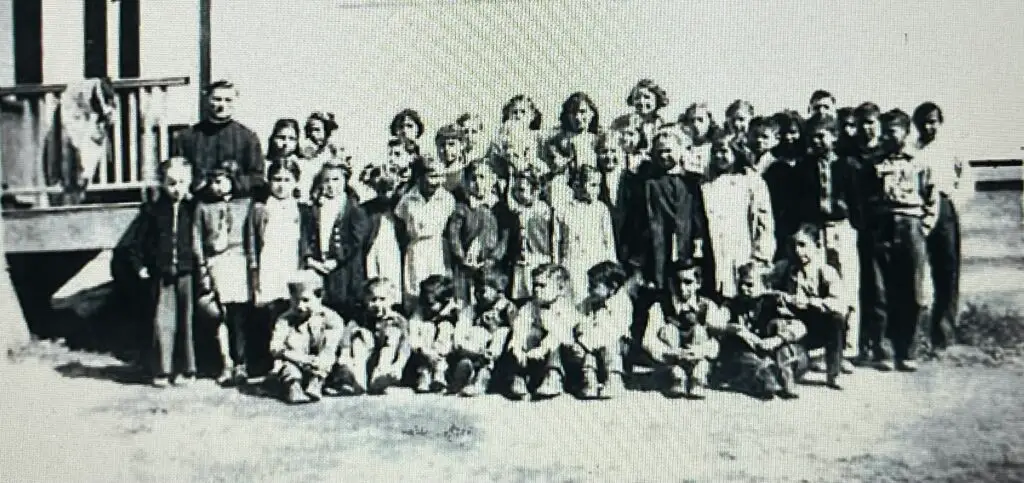
The site is now used as a day care and recreation center.
The establishment of the school systems in Akwesasne is sketchy, as there are no written records or history of the school systems. While many children attended residential school across Canada; Children from Akwesasne were not forced to go, and the majority of children from Akwesasne attended one of the four Indian Day Schools which operated in Akwesasne.
It wasn’t until 1987, when the people of Akwesasne took full control of the remaining day
schools, that the Indian Day School era came to an end.
“Aboriginal Rights and Research office was involved in assisting individuals who attended these schools
in completing their claim forms and forwarding them to the legal team. But that was the extent of our
involvement in the claim.” Said an e-mailed statement from Cheyanne Lazore, Manager of the Aboriginal Rights and Research Office, who’s office was responsible for educating Akwesasne residents on the Indian Day School Settlement and Application Process.
https://www.cbc.ca/amp/1.7219721
While many were forced to relive their traumas during the application process; no one was prepared for
the lasting impacts the application process would have on survivors. Many suffered in silence, finding
ways to cope with the re-traumatization on their own; Akwesasne began to experience increased overdoses and homelessness in the years to follow.
After visiting the homeless encampments in the city of Cornwall and speaking with several day school survivors from Akwesasne, who are or have been homeless in the past few years; it became very clear that the only difference between Indian residential schools and Indian day schools, was that the students were able to go home at the end of the day. The abuses that Indian day school students endured were just as horrific and traumatizing as what was experienced in Indian residential schools.
“What I witnessed was the priests and the nuns forcing the older kids on the younger kids, forcing them to rape them. They were forcing them; they were beating them up if they didn’t. Then after school, eventually it became something that the kids were doing on their own, and no one did anything about it.” said Point, “It became a learned behavior, and the day school survivor’s I’ve counselled with carry a lot of shame because of it.”
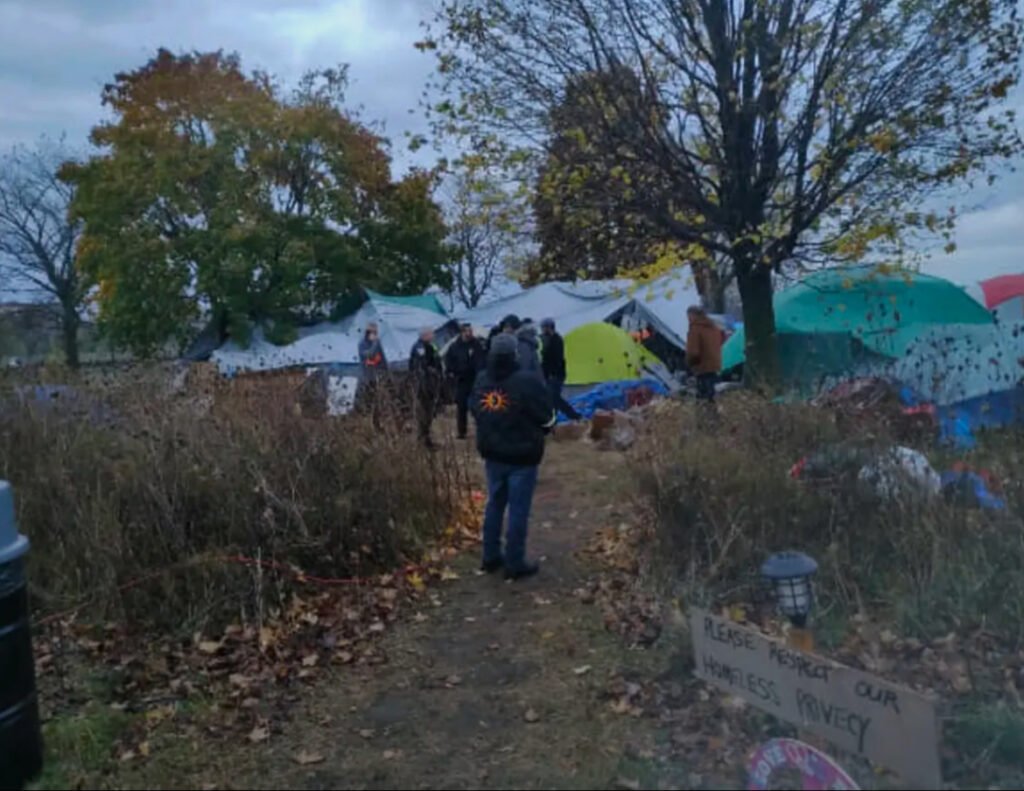
Realizing that something more needed to be done, Point advocated for a healing center back in 2021;
which was close to coming to fruition once the Mohawk Council of Akwesasne leased the old Cornwall
General Hospital, only to be shut down by the City of Cornwall refusing to issue the proper permits
which would have allowed the Healing center to open its doors and begin supporting indigenous and
non-indigenous alike.

Photo credit: Cornwall Seaway News
Now three years later, neither the City of Cornwall or Mohawk Council of Akwesasne has made any efforts to open an Indigenous led healing center; although they are now in the beginning phases of creating an Truth and Reconciliation Action Plan, and are currently conducting surveys asking questions such as, “Do you believe the City of Cornwall should do more to address the Truth and Reconciliation Commission’s Calls to Action?” and “How important do you think it is for the City of Cornwall to develop and implement a Truth and Reconciliation Action Plan?”. The Action Plan will be created once consultation is complete sometime this year, taking input from both residents of Akwesasne and the City of Cornwall.
In the meantime, Point continues to advocate for and work with the homeless and vulnerable in the city of Cornwall, many of whom are Indian day school survivors; whether it be food, medicine, shelter, ceremony or counselling. Point and many other volunteers continue to show up and support in any way they can.

“We don’t need an hour counselling. We need time spent with no limit. Like, when we were with our
grandparents or the ones who we looked up to and cherished; that spent that time with us, no
questions asked. Sitting outside by them quietly, they let you talk, or they talk. That’s how it is over
here.” Said Point, referring to one of the encampments on the Northshore of Akwesasne, in what is now
known as Pointe Maligne, in the City of Cornwall.
The encampment on Pointe Maligne has become a safe zone for many homeless and vulnerable people
in the city of Cornwall; despite frequent harassment by police and city officials after the City of Cornwall passed a new by-law restricting encampments on municipal lands on June 25th, 2024 . Many homeless and
vulnerable people from Akwesasne and the surrounding area struggle to survive in these encampments,
with hopes of a brighter future.
Until such a time that there is somewhere supportive, safe and accessible to those struggling with homelessness and addiction in the City of Cornwall; the encampments on the North Shore will continue to exist.

